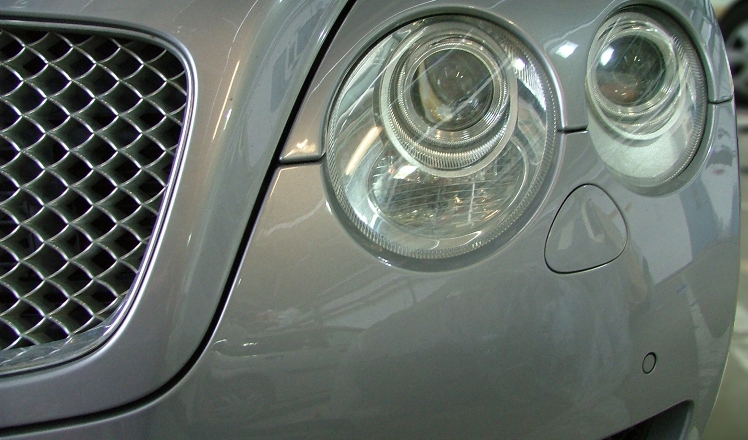You are here :
Homepage >
Cars >
Citroën >
News >
The Citroën C4 BioFlex for the 2007 IAA at Frankfurt
The Citroën C4 BioFlex for the 2007 IAA at Frankfurt
The 1.6-litre powered C4 BioFlex is Citroën's first flexfuel vehicle in Europe, with its ability to run seamlessly on low-carbon E85 bioethanol, regular unleaded or a mixture of both.

Already well established in Brazil, where flexfuel models currently account for 80 percent of Citroën sales, the Company is now introducing the technology to Europe as availability of E85 fuel increases. The car will initially be launched later this year in France and Sweden, where it is set to be priced the same as the equivalent petrol models.

When E85 bioethanol is being used, CO2 emissions on a “field-to-wheel” basis drop by 40 percent compared to standard fuel. Its oxygen-containing, sulphur-free properties also help reduce other harmful pollutants, particularly carbon monoxide (CO). At the same time CO2 emissions fall by 5 percent from 169g/km to 160g/km on the combined cycle.

As an added bonus, when running on E85 bioethanol, performance for the 1.6i engine is boosted by 2.5 percent to give a maximum output of 113bhp (compared to 110bhp on standard unleaded) at 5,800rpm and a 4 percent improvement in torque from 147Nm to 153Nm at 4,000rpm.
In order to accommodate the flexibility afforded to the C4 BioFlex, modifications have been made to the engine, such as the rings and valve seats, as well as the fuel circulation system, including the tank, fuel gauge and pump module, pipes and fuel filter.

The engine's intelligent ECU software has also been adapted to monitor the alcohol content of the fuel mix, and automatically recalibrate the operating curve to optimise performance. As a result of all this, regardless of the fuel type or mixture, there is no discernible difference in the driving experience.
The scale of investment in the British biofuel industry was underlined earlier this year with the commencement of work on a new £250m bioethanol factory in Teesside*, which will eventually produce 400 million litres of homegrown fuel annually.


Already well established in Brazil, where flexfuel models currently account for 80 percent of Citroën sales, the Company is now introducing the technology to Europe as availability of E85 fuel increases. The car will initially be launched later this year in France and Sweden, where it is set to be priced the same as the equivalent petrol models.

When E85 bioethanol is being used, CO2 emissions on a “field-to-wheel” basis drop by 40 percent compared to standard fuel. Its oxygen-containing, sulphur-free properties also help reduce other harmful pollutants, particularly carbon monoxide (CO). At the same time CO2 emissions fall by 5 percent from 169g/km to 160g/km on the combined cycle.

As an added bonus, when running on E85 bioethanol, performance for the 1.6i engine is boosted by 2.5 percent to give a maximum output of 113bhp (compared to 110bhp on standard unleaded) at 5,800rpm and a 4 percent improvement in torque from 147Nm to 153Nm at 4,000rpm.
In order to accommodate the flexibility afforded to the C4 BioFlex, modifications have been made to the engine, such as the rings and valve seats, as well as the fuel circulation system, including the tank, fuel gauge and pump module, pipes and fuel filter.

The engine's intelligent ECU software has also been adapted to monitor the alcohol content of the fuel mix, and automatically recalibrate the operating curve to optimise performance. As a result of all this, regardless of the fuel type or mixture, there is no discernible difference in the driving experience.
The scale of investment in the British biofuel industry was underlined earlier this year with the commencement of work on a new £250m bioethanol factory in Teesside*, which will eventually produce 400 million litres of homegrown fuel annually.


